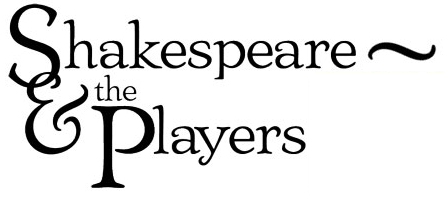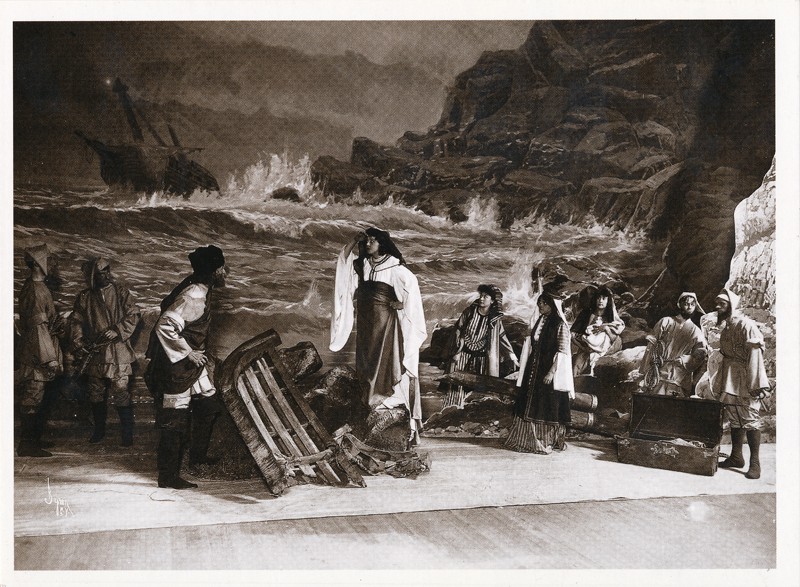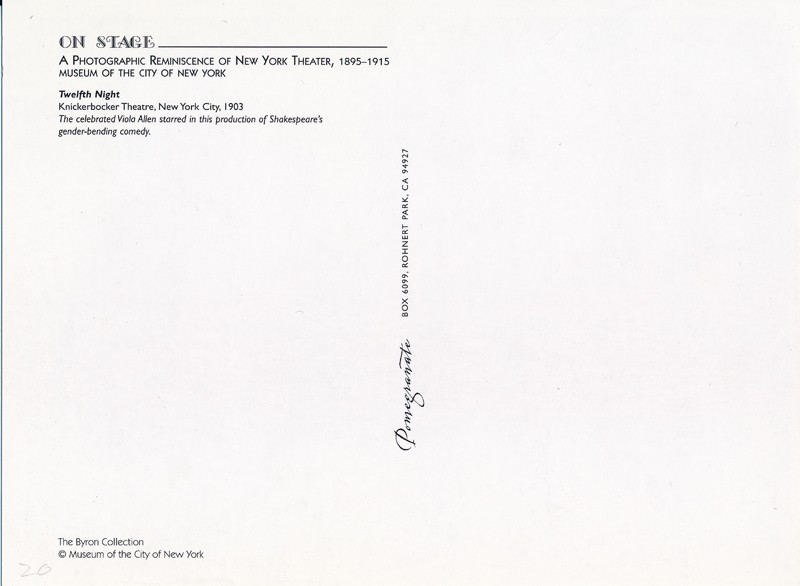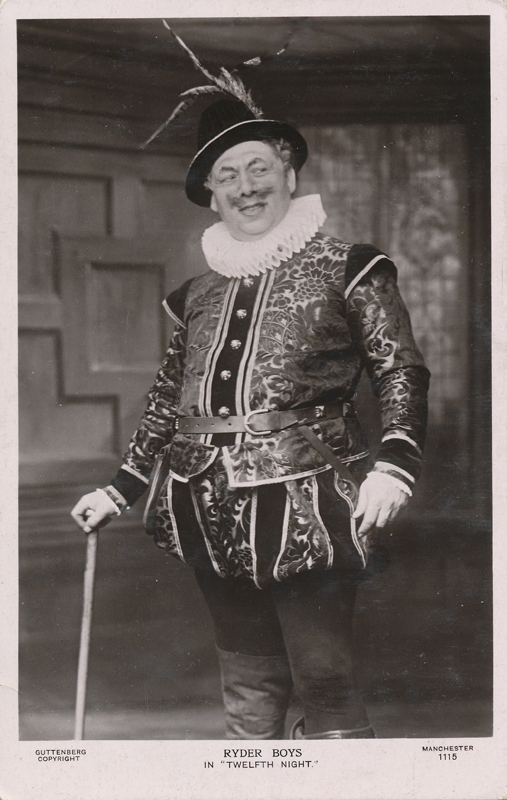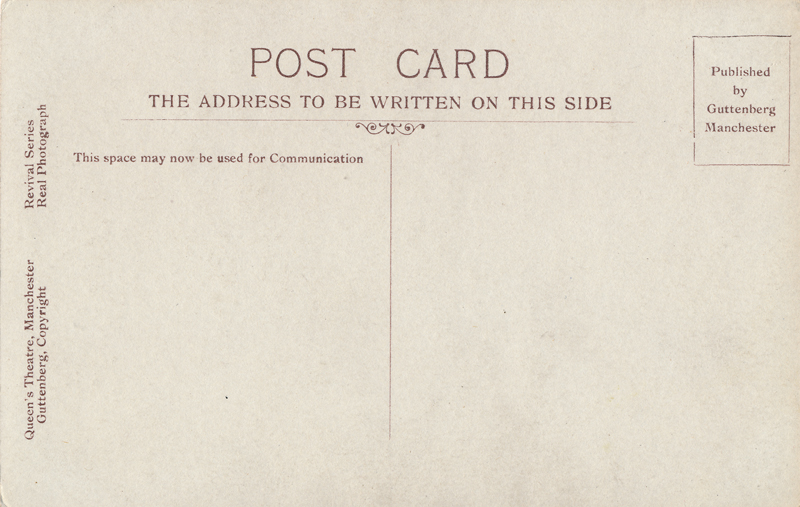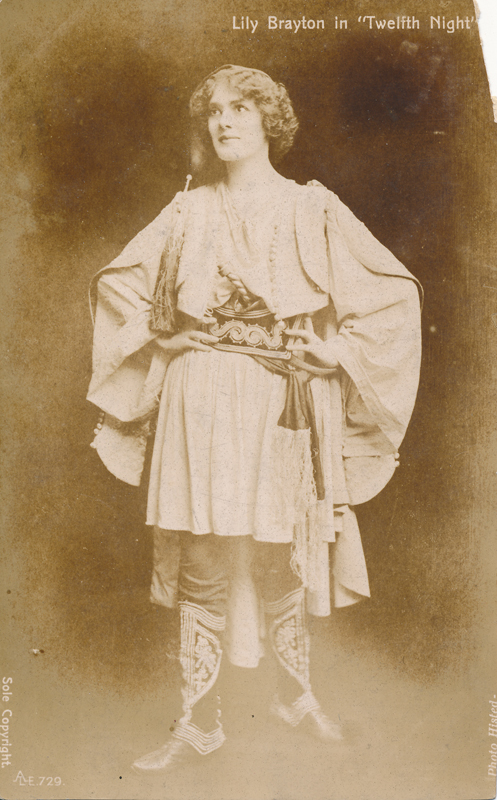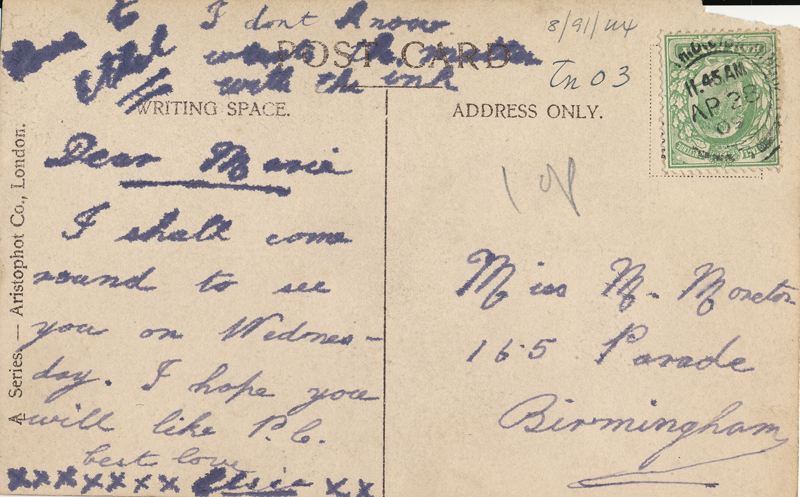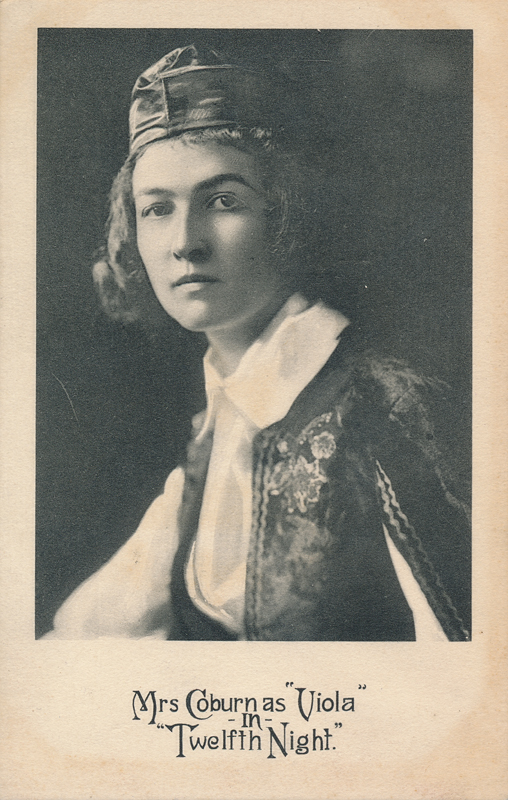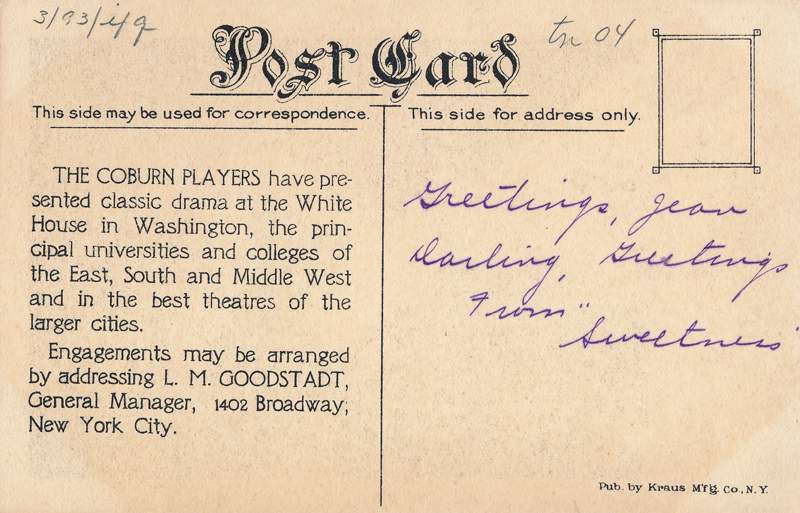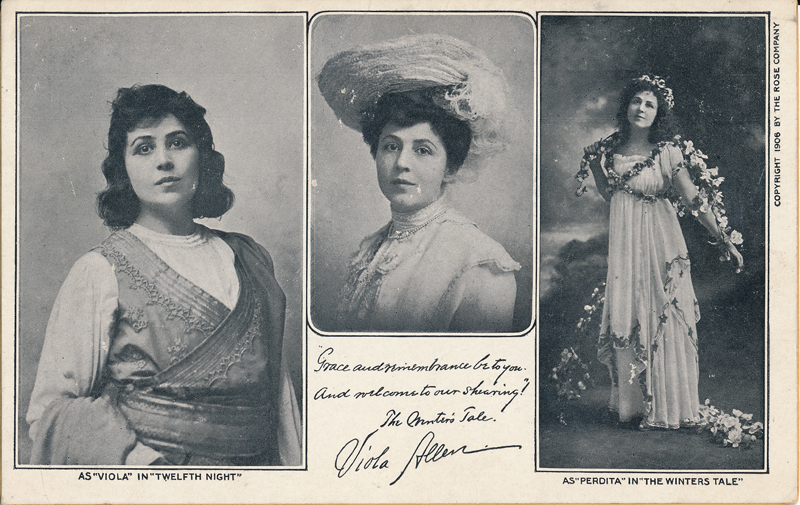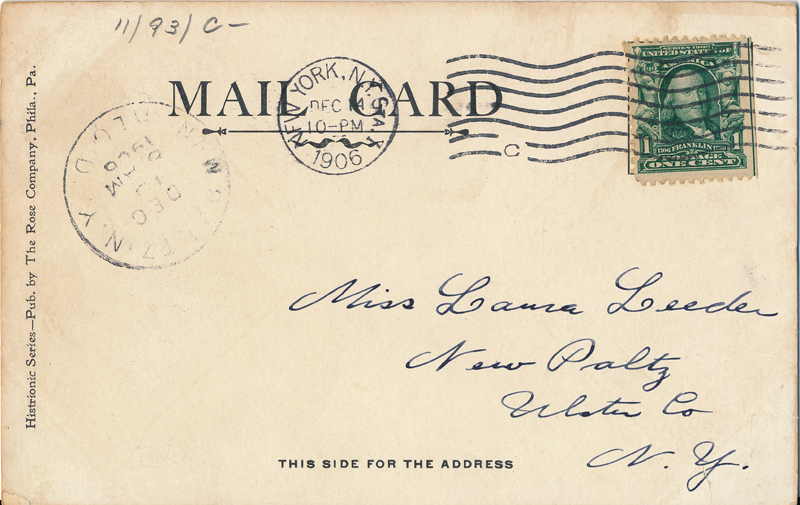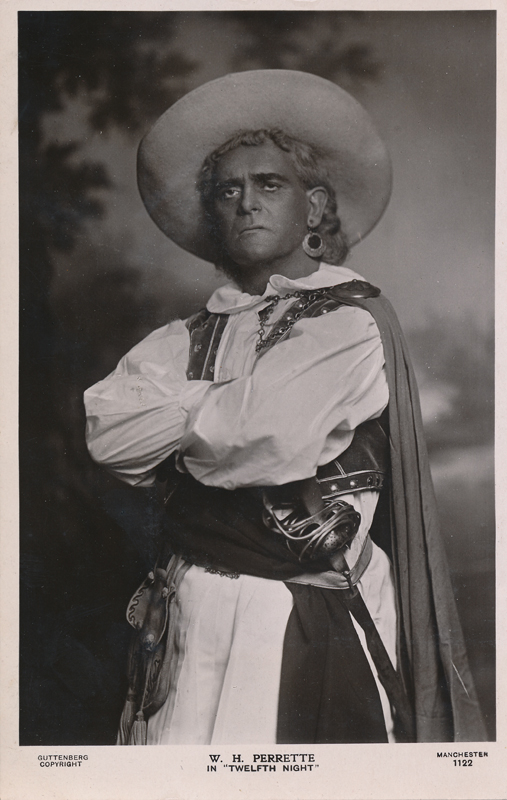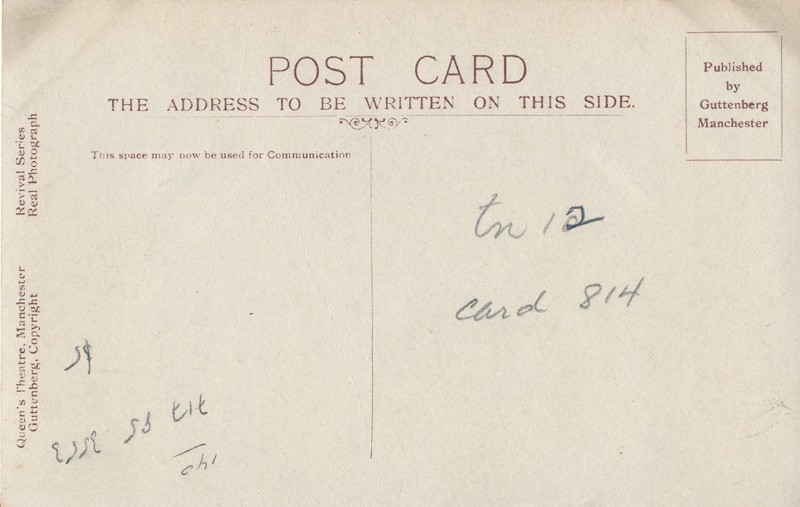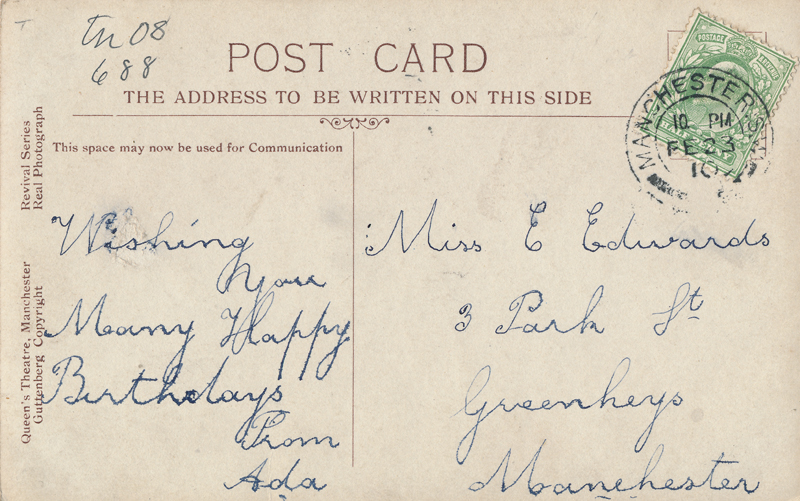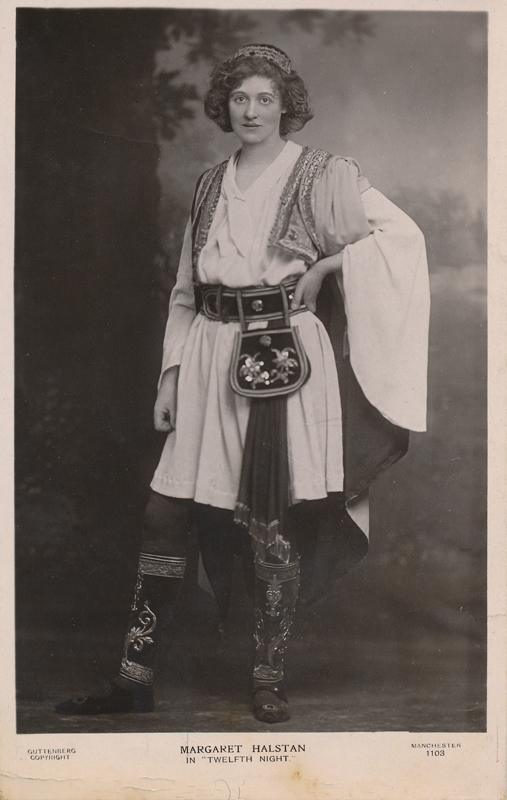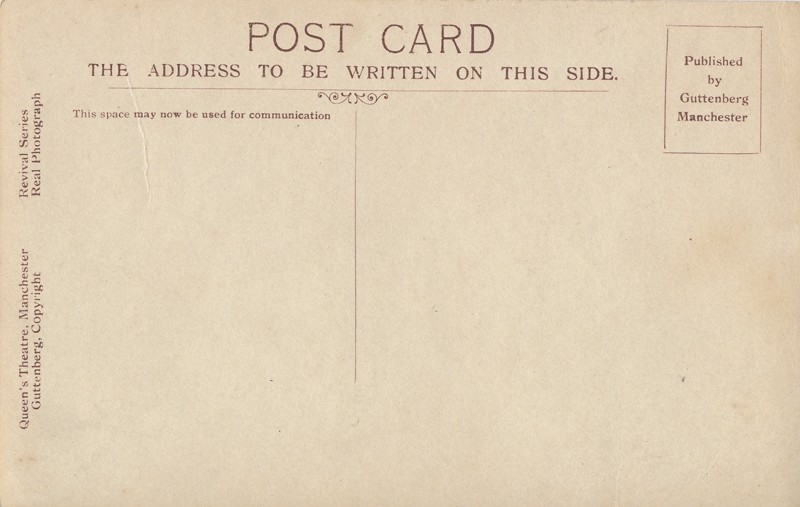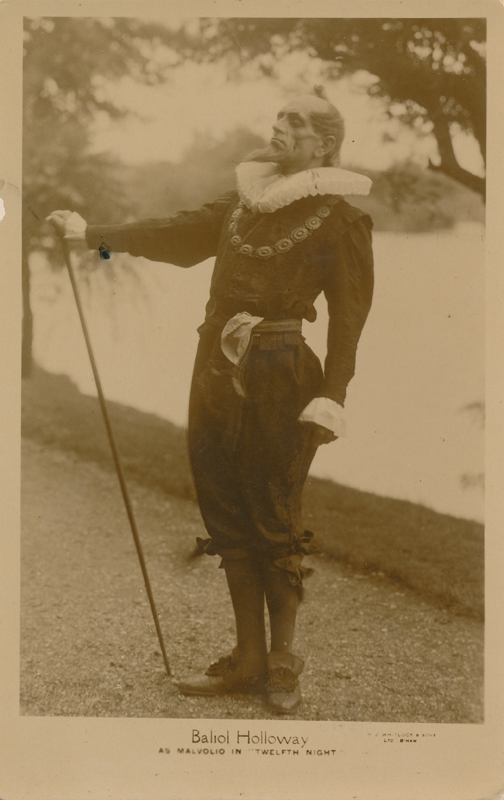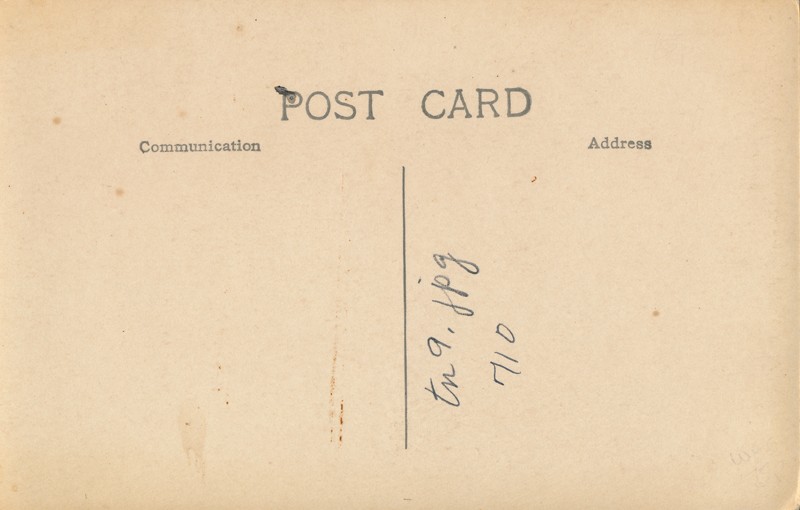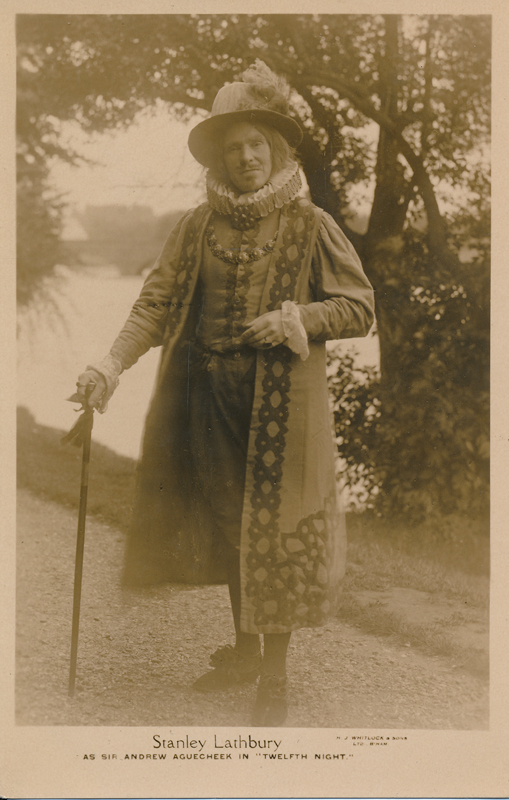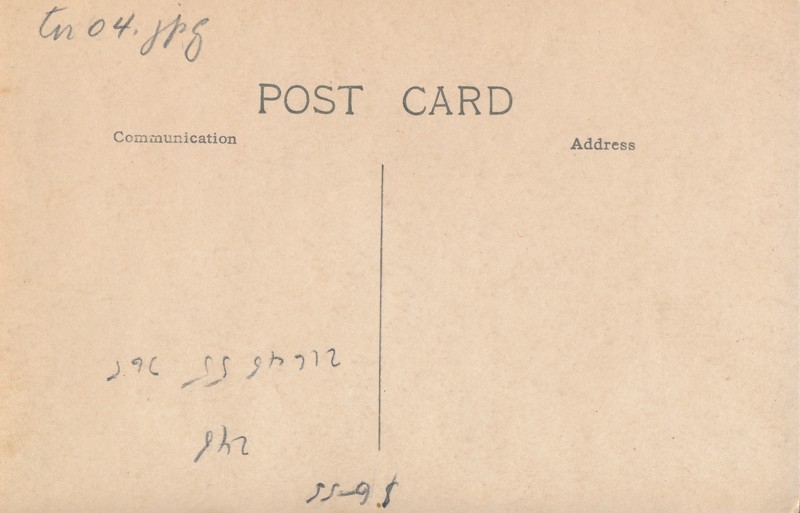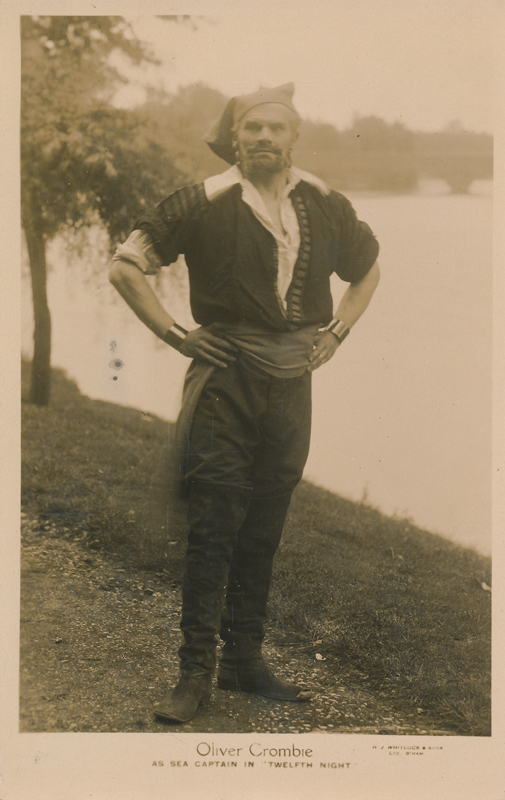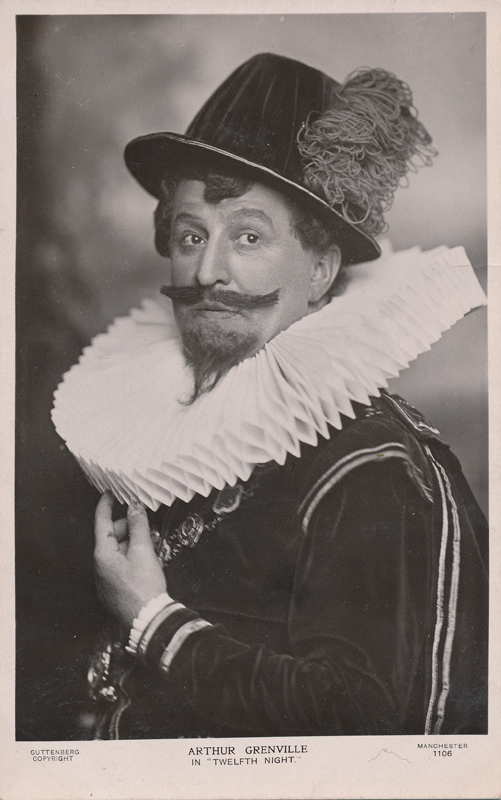
For still we prove much in our vows, but little in our love. (2.4)
Twelfth Night—an allusion to the night of festivity preceding the Christian celebration of the Epiphany—combines love, confusion, mistaken identities, and joyful discovery.
After the twins Sebastian and Viola survive a shipwreck, neither knows that the other is alive. Viola goes into service with Count Orsino of Illyria, disguised as a young man, “Cesario.” Orsino sends Cesario to woo the Lady Olivia on his behalf, but Olivia falls in love with Cesario. Viola, in the meantime, has fallen in love with Orsino.
At the estate of Lady Olivia, Sir Toby Belch, Olivia’s kinsman, has brought in Sir Andrew Aguecheek to be her suitor. A confrontation between Olivia’s steward, Malvolio, and the partying Toby and his cohort leads to a revenge plot against Malvolio. Malvolio is tricked into making a fool of himself, and he is locked in a dungeon as a lunatic.
In the meantime, Sebastian has been rescued by a sea captain, Antonio. When Viola, as Cesario, is challenged to a duel, Antonio mistakes her for Sebastian, comes to her aid, and is arrested. Olivia, meanwhile, mistakes Sebastian for Cesario and declares her love. When, finally, Sebastian and Viola appear together, the puzzles around the mistaken identities are solved: Cesario is revealed as Viola, Orsino asks for Viola’s hand, Sebastian will wed Olivia, and Viola will marry Count Orsino. Malvolio, blaming Olivia and others for his humiliation, vows revenge (reproduced with permission from Folger).
Postcards of Twelfth Night:
Productions of Twelfth Night:
1904 On February 8, Viola Allen starred in a two-week run of Charles Frohman’s production of Twelfth Night at the Knickerbocker Theatre. On February 22 a new cast with Ben Greet’s company began another two-week run. In this second production Ben Greet played Malvolio and Edith Wynn Matthison played Viola.
1909 The London Shakespeare Festival presented by Herbert Beerbohm Tree‘s ensemble, began June 21 at His Majesty’s Theatre, London. The festival ran for two weeks with The Merry Wives of Windsor, Twelfth Night, Julius Caesar, Hamlet, Richard III, The Merchant of Venice, and Macbeth (Loney, I: 50).
Gerald Laurence and Fay Davis open their Shakespeare season on April 12 at the Royal Court Theatre, London. The plays included As You Like It, Romeo and Juliet, The Merchant of Venice, and Twelfth Night (Loney, I: 49).
The London Shakespeare Festival presented by Herbert Beerbohm Tree’s ensemble, began June 21 at His Majesty’s Theatre, London. The festival ran for two weeks with The Merry Wives of Windsor, Twelfth Night, Julius Caesar, Hamlet, Richard III, The Merchant of Venice, and Macbeth (Loney, I: 50).
1910 The New Theatre Company opened for its first time on January 26 with Twelfth Night, starring Annie Russell, Louis Calvert, and Matheson Lang (Loney, I: 53).
Starting on February 7, E. H. Sothern and Julia Marlowe play for six weeks at the Academy of Music, New York City. Included in the repertory are Hamlet, As You Like It, The Taming of the Shrew, Romeo and Juliet, The Merchant of Venice, and Twelfth Night (Loney, I: 53).
Beginning on March 28, several companies presented a London Shakespeare Festival at His Majesty’s Theatre. Herbert Beerbohm Tree’s company played The Merry Wives of Windsor, Julius Caesar, Twelfth Night, and Hamlet. Norman Mckinnel presented King Lear and The Merchant of Venice; Arthur Bourchier and his company came next with The Merchant of Venice. H. B. Irving played Hamlet, and Frank Benson‘s “Bensonians” followed with the Taming of the Shrew and Coriolanus. Poel’s Elizabethan Stage Society gave a performance—in the “original” sixteenth-century style—of The Two Gentlemen of Verona. Lewis Waller revived his Henry V, and Tree returned to close the Festival with The Merchant of Venice and Richard II (Loney, I: 54).
At the first Stratford-upon-Avon Summer Shakespeare Festival, Benson presented The Winter’s Tale, Julius Caesar, Macbeth, Henry V, Twelfth Night, As You Like It, Richard II, Hamlet, and The Merry Wives of Windsor (Loney, I: 54).
1911 On April 17, the annual Stratford Shakespeare Festival opened with The Merry Wives of Windsor. This year Frank Benson also offered The Merchant of Venice, Twelfth Night, Much Ado About Nothing, Henry V, Julius Caesar, Macbeth, As You Like It, Romeo and Juliet, A Midsummer Night’s Dream, and Richard III (Loney, I: 158).
The London Shakespeare Festival opened on May 22 at His Majesty’s Theatre with Herbert Beerbohm Tree’s Julius Caesar, followed by Oscar Asche and Lily Brayton‘s As You Like It. Next came The Merchant of Venice and Twelfth Night. Frank Benson presented The Taming of the Shrew,Tree revived his Henry VIII, and the Festival closed with Benson’s Richard III and on July 3, the final night, The Merry Wives of Windsor (Loney, I: 158).
E. H. Sothern and Julia Marlowe opened their season at the Broadway Theatre, New York City. In the repertory were Macbeth, The Taming of the Shrew, Hamlet, The Merchant of Venice,Romeo and Juliet, and Twelfth Night. They returned on November 20 and added As You Like It to the list (Loney, I: 158).
1912 On April 9, Herbert Beerbohm Tree opened his season of Shakespeare at His Majesty’s Theatre, London, with Othello; his company also performedThe Merchant of Venice, Twelfth Night, and Henry VIII (Loney, I: 63).
The annual Stratford-upon-Avon Shakespeare Festival opened this year on April 22 with The Merchant of Venice; Frank Benson’s company also performed Henry V, A Midsummer Night’s Dream, Hamlet, Romeo and Juliet, Coriolanus, The Taming of the Shrew, Julius Caesar, Twelfth Night, and Richard III (Loney, I: 63).
1913 The first season of the Birmingham Repertory Company opened with Barry Jackson’s production of Twelfth Night (Loney, I: 68).
In the month of June Herbert Beerbohm Tree staged a revival of The Merchant of Venice, Twelfth Night, Julius Caesar, and Romeo and Juliet; Tree played Shylock, Malvolio, Marc Antony, and Mercutio (Loney, I: 68).
Frank Benson’s summer season of Shakespeare’s plays opened on August 2 with The Merchant of Venice; other plays performed that season were As You Like It, Hamlet, King John,Richard II, The Merry Wives of Windsor, Much Ado About Nothing, Romeo and Juliet, The Taming of the Shrew, Twelfth Night, and Henry IV, Part 2 (Loney, I: 68).
1914 On March 16, at the Hudson Theatre, New York City, Margaret Anglin began a run of Shakespeare plays; she directed and played in As You Like It, Twelfth Night, and The Taming of the Shrew (Loney, I: 72).
Another annual Stratford Shakespeare Festival opened with A Midsummer Night’s Dream; Frank Benson’s company was still on tour in the United States, so Patrick Kirwan directed this year’s offerings: Much Ado About Nothing, The Comedy of Errors, Twelfth Night, Hamlet, As You Like It, and The Merchant of Venice (Loney, I: 72).
Frank Benson returned from the United States to direct the Stratford Summer Festival. He opened the four-week festval with Much Ado About Nothing. The company also presented Hamlet, Richard II, Henry IV, Part 2, Henry V, The Merry Wives of Windsor, The Merchant of Venice, Twelfth Night, Julius Caesar, As You Like It, The Taming of the Shrew, and Romeo and Juliet (Loney, I: 73).
On October 5, the Old Vic Theatre, London, under the management of Lilian Baylis, mounted a production of The Taming of the Shrew. Additionally, the following plays were performed for the first time in 1914 at the Old Vic: Hamlet, The Merchant of Venice, The Tempest, The Merry Wives of Windsor, The Comedy of Errors, Twelfth Night, and A Midsummer Night’s Dream. Baylis will by 1923 have produced the entire Shakespeare canon of thirty-seven plays (Loney, I: 73).
